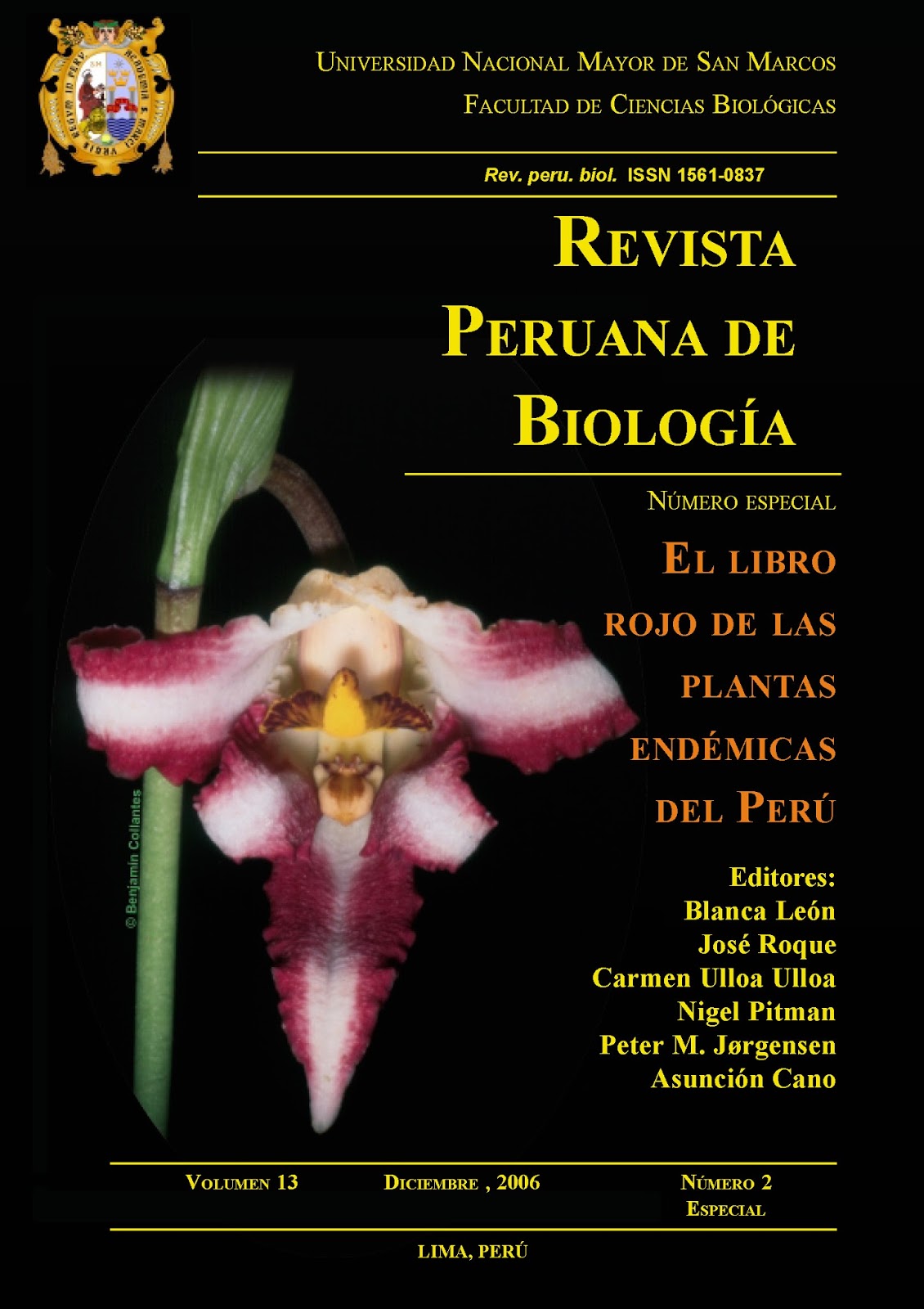
The hardware and bandwidth for this mirror is donated by METANET, the Webhosting and Full Service-Cloud Provider.
If you wish to report a bug, or if you are interested in having us mirror your free-software or open-source project, please feel free to contact us at mirror[@]metanet.ch.

The R package redbookperu provides convenient access to
the information contained in the Red
Book of Endemic Plants of Peru. This book represents a comprehensive
compilation of data on Peru’s endemic plant species, encompassing
records of 5,507 distinct taxa. Although this document marked a
milestone by consolidating an ambitious initiative focused on
understanding the diversity of Peru’s endemic plant species at the time
of its publication, it currently requires a review and update of the
presented taxonomic information.
The process of accessing data from the original publication can pose
challenges for researchers, particularly due to the large number of taxa
presented within it. The redbookperu package has the
primary objective of addressing these challenges by providing updated
taxonomic information. Additionally, it introduces functions designed to
enhance the accessibility and usefulness of the data presented in the
Red Book of Endemic Plants of Peru.
The information included in the redbookperu package is
built with the support of the Taxonomic Name Resolution Service
TNRS, in collaboration with the World Checklist of
Vascular Plants WCVP database. These resources are utilized to
ensure the validity and standardization of the taxonomic information
that we provide.
You can install the redbookperu package from CRAN
using:
install.packages("redbookperu")
# or
pak::pak("redbookperu")You can install the development version of redbookperu
from GitHub:
pak::pak("PaulESantos/redbookperu")After installing the redbookperu package, you can load
it into your R session using:
library(redbookperu)
#> This is redbookperu 0.0.3To determine if a species of interest is listed in the Red Book of
Endemic Plants of Peru, we provide the check_redbooklist()
function. This function verifies whether the species of interest is
included in the book’s species list.When the species of interest doesn’t
match the species list, the response is “Not endemic”.
splist <- c("Aphelandra cuscoenses",
"Sanchezia capitata",
"Sanchezia ovata",
"Piper stevensi",
"Verbesina andinaa",
"Verbesina andina",
"Weinmania nubigena")
redbookperu::check_redbooklist(splist, dist = 0.2)
#> Total exact matches: 2
#> Total fuzzy matches: 3
#> [1] "endemic" "endemic" "not endemic" "endemic" "endemic"
#> [6] "endemic" "not endemic"Function indicate the presence of partial matches (fuzzy match) when the name of the species of interest varies compared to the information present in the database.
check_redbooklist() function is designed to work
seamlessly with tibble, allowing users to easily analyze species data
within a tabular format.
tibble::tibble(splist = splist) |>
dplyr::mutate(endemic = redbookperu::check_redbooklist(splist,
dist = 0.2))
#> Total exact matches: 2
#> Total fuzzy matches: 3
#> # A tibble: 7 × 2
#> splist endemic
#> <chr> <chr>
#> 1 Aphelandra cuscoenses endemic
#> 2 Sanchezia capitata endemic
#> 3 Sanchezia ovata not endemic
#> 4 Piper stevensi endemic
#> 5 Verbesina andinaa endemic
#> 6 Verbesina andina endemic
#> 7 Weinmania nubigena not endemicIf you intend to access the information provided for each of the
species listed in the Red Book of Endemic Plants of Peru, you have the
option to use the get_redbook_data() function. This
function facilitates the association of updated taxonomic information
with the details concerning conservation status, distribution, and
descriptions presented in the original publication.
redbookperu::get_redbook_data(c("Sanchecia capitata",
"Weinmania nubigena",
"Macroclinium christensonii",
"Weberbauera violacea"),
dist = 0.2)
#> name_subitted accepted_name accepted_name_author
#> 1 Sanchecia capitata --- ---
#> 2 Weinmania nubigena --- ---
#> 3 Macroclinium christensonii Macroclinium christensonii D.E.Benn.
#> 4 Weberbauera violacea Weberbauera violacea Al-Shehbaz
#> accepted_family redbook_name iucn
#> 1 --- --- ---
#> 2 --- --- ---
#> 3 Orchidaceae Macroclinium christensonii CR, B1abiii
#> 4 Brassicaceae Weberbauera violacea DD
#> publication collector
#> 1 --- ---
#> 2 --- ---
#> 3 Brittonia 46(3): 249 - 251, f. 13. 1994. O. del Castillo ex D.E. Bennett 5160
#> 4 Novon 14(3): 266 - 268, f. 3. 2004. A. Sagástegui A. et al. 11175
#> herbariums common_name dep_registry ecological_regions sinampe
#> 1 --- --- --- --- ---
#> 2 --- --- --- --- ---
#> 3 NY. Desconocido. JU BMHM; 1800 m. Sin registro
#> 4 MO; HUT!. Desconocido. CA PAR; 3800 m. Sin registro
#> peruvian_herbariums
#> 1 ---
#> 2 ---
#> 3 Ninguno.
#> 4 HUT (isotipo).
#> remarks
#> 1 ---
#> 2 ---
#> 3 Esta hierba epífita es conocida sólo de la colección tipo, proveniente del valle de Chanchamayo, en una subcuenca del Perené. Esta región ha sufrido continuas reducciones de sus áreas naturales debido a la ampliación de la frontera agrícola.
#> 4 Esta hierba paramuna es conocida de la localidad tipo, en la cuenca del Crisnejas, un tributario del Marañón. El ejemplar tipo fue recolectado en 1983, de una jalca poco herborizada.The code for the new version of the redbookperu package
is based on the lcvplants
package, with modifications specifically tailored to work with the data
from the Red Book of Endemic Plants of Peru.
These binaries (installable software) and packages are in development.
They may not be fully stable and should be used with caution. We make no claims about them.